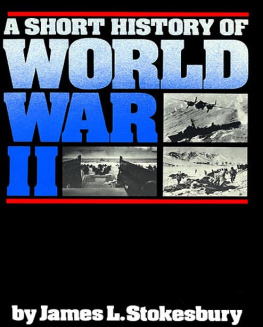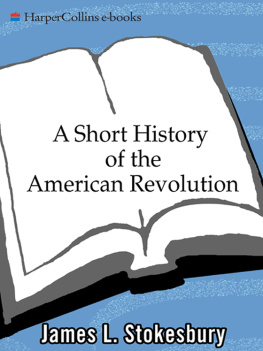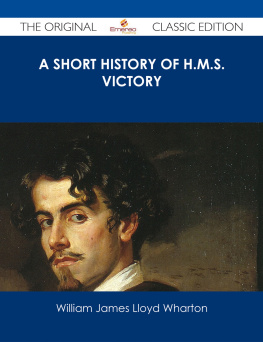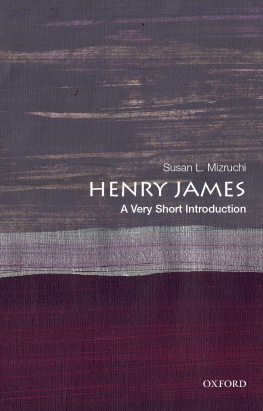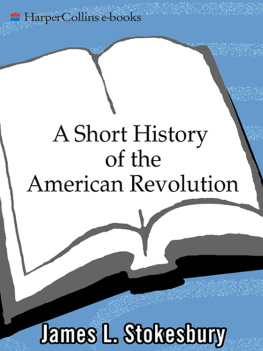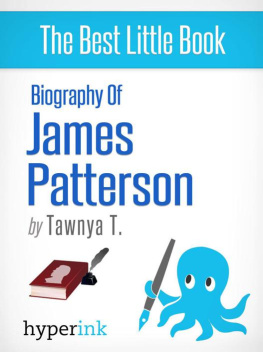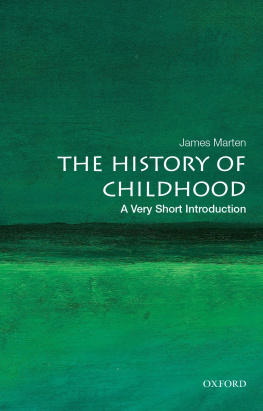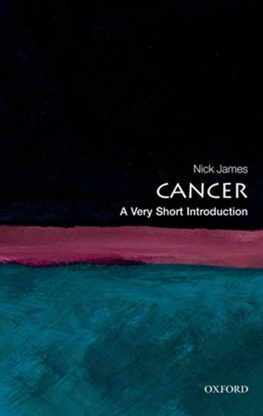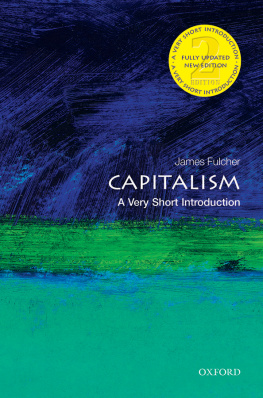James L. Stokesbury - A Short History of World War II
Here you can read online James L. Stokesbury - A Short History of World War II full text of the book (entire story) in english for free. Download pdf and epub, get meaning, cover and reviews about this ebook. publisher: HarperCollins, genre: History. Description of the work, (preface) as well as reviews are available. Best literature library LitArk.com created for fans of good reading and offers a wide selection of genres:
Romance novel
Science fiction
Adventure
Detective
Science
History
Home and family
Prose
Art
Politics
Computer
Non-fiction
Religion
Business
Children
Humor
Choose a favorite category and find really read worthwhile books. Enjoy immersion in the world of imagination, feel the emotions of the characters or learn something new for yourself, make an fascinating discovery.
- Book:A Short History of World War II
- Author:
- Publisher:HarperCollins
- Genre:
- Rating:4 / 5
- Favourites:Add to favourites
- Your mark:
- 80
- 1
- 2
- 3
- 4
- 5
A Short History of World War II: summary, description and annotation
We offer to read an annotation, description, summary or preface (depends on what the author of the book "A Short History of World War II" wrote himself). If you haven't found the necessary information about the book — write in the comments, we will try to find it.
A Short History of World War II — read online for free the complete book (whole text) full work
Below is the text of the book, divided by pages. System saving the place of the last page read, allows you to conveniently read the book "A Short History of World War II" online for free, without having to search again every time where you left off. Put a bookmark, and you can go to the page where you finished reading at any time.
Font size:
Interval:
Bookmark:

S OON AFTER P EARL H ARBOR , my father enlisted in the army, where he served until 1945 as a sergeant in the 338th Infantry, 85th Division, in the Italian campaign. My mother went to work in a defense plant in Connecticut. I would like to think that this book is a small thank-you for what they did during those years of war.
I T IS A PLEASURE for me to acknowledge the assistance, direct and indirect, of many friends who have helped in the preparation of this work. The staffs of the Acadia University Library, the Dalhousie University Library, and the Cambridge Military Library, Halifax, have been uniformly helpful. All my colleagues in the Department of History, Acadia University, have been unfailingly supportive; special thanks must go to Dr. A. H. MacLean, Head of the Department, and to Dr. Martin Blumenson and Dr. Thaddeus V. Tuleja, both holders of the Visiting Professorship of Military and Strategic Studies, for their encyclopedic knowledge of World War II. Miss Debbie Bradley typed the entire manuscript with a most encouraging enthusiasm. A more general word of thanks is due to my students in my course on World War II for their interest and inquisitiveness over the years, which did much to prompt this study. I must add the cautionary note that any errors of fact or interpretation are mine, and not to be attributed to anyone else. My final, and most heartfelt, thanks go to my wife, who has been my kindest and most patient critic.
J AMES L. S TOKESBURY
W ORLD W AR II BEGAN in Europe at dawn on September 1, 1939, as units of the German Wehrmacht crossed the Polish border. Britain and France, honoring their pledge to Poland made earlier in the year, declared war on Germany on September 3. The war lasted nearly six years, and by the time it was over, much of the civilized world lay in ruins, something more than thirty million people had been killed, great empires had been destroyed, and weapons of new and hitherto unimagined potential had been unleashed upon the world.
Such a result could not have stemmed from a border dispute between Germany and Poland. The powder train that led to the outbreak of war went back far beyond the immediate causes of it. Without stretching historical continuity too far, the causes of World War II can be taken back at least into the nineteenth century. For practical purposes, however, World Wars I and II can be considered part of one large strugglethe struggle of united Germany to claim its place as the dominant power on the European continentand the causes of World War II can be traced from the immediate aftermath of World War I.
In 1919, a series of treaties was made between the victorious Allies and the various defeated powers. All of these were punitive in nature. They consisted of the Peace of Versailles with Germany, the Peace of Saint-Germain-en-Laye with Austria, the Peace of Neuilly with Bulgaria, the Peace of the Trianon with Hungary, and the Peace of Svres with Turkey, later modified by the Peace of Lausanne. The fact that all of the original treaties were signed in the suburbs of Paris and bore their names was indicative of the place still occupied by the French in the world of diplomacy and power. Though she had virtually ruined herself, in the present and for the future, France had proved that she was still the major power of Europe. All of the peace treaties, though they did put the burden of the war on the defeated Central Powers, also contained the provision that the vanquished might subsequently be admitted to the League of Nations, that much maligned brainchild of President Woodrow Wilson. The League, its supporters hoped, with its provisions for collective security, would provide alternatives to war in the future.
The five years after the establishment of the Versailles system have been called the period of settlement. Assorted border disputes left over from the war and the collapse of the eastern European empiresRussia, the Hapsburgs, and Turkeywere settled, and diplomatic groupings were made and unmade. The Greeks fought the Turks; the Poles fought the Russians; Italians and Yugoslavs quarreled over the head of the Adriatic. France, Britain, and the United States negotiated a defensive alliance that promised to protect France from Germany. On the basis of that, the French modified their demands against Germany. The United States Senate then refused to ratify the alliance treaty, as it did also the Versailles treaty. The French were then disposed to meddle ineffectually in German politics, trying to foster a breakaway Rhenish republic, occupying the industrial Ruhr district, and engaging in activities that made the Americans, at least, believe that the French could not have been trusted anyway.
Nonetheless, by 1924, it looked as if some degree of stability were returning to Europe, and the late twenties were the nearest to a period of peace and prosperity that post-World War I Europe got. In 1924, assorted member-states of the League of Nations attempted to overcome some of the security deficiencies of the League by drafting treaties of compulsory arbitration. None of these developed, largely because the United States, Germany, and Russia were not members, and because the British dominions were unwilling to commit themselves to minding distant neighbors houses.
The unsuccessful discussions did lead, though, to a conference held at Locarno in Switzerland in 1925. This produced another series of agreements, known as the Locarno system, which effectively updated the Versailles system. In the first of these, France, Great Britain, Belgium, Germany, and Italy guaranteed the Franco-German and the Belgo-German borders. Next, Germany signed an arbitration treaty with Poland, and one with Czechoslovakia. Then Germany signed a similar treaty with France and one with Belgium. Theoretically, these treaties removed any likelihood of German aggression in the future. In spite of that, France then proceeded to develop further her mutual defense treaty with Poland, in which one agreed to come to the rescue if the other were attacked by Germany. France then went on and signed the same kind of treaty with Czechoslovakia.
Locarno was hailed as a milestone in European diplomacy, and for a while the spirit of Locarno and the Locarno honeymoon were phrases widely used by the newspapers. A later outgrowth of it was the famous Kellogg-Briand Pact, signed between the United States Secretary of State and the French Foreign Minister; this pact was rather like the Holy Alliance of Tsar Alexander in 1815, which Metternich called a high-sounding nothing. All the states that eventually adhered to it renounced the use of aggressive warfare as an instrument of policy. There was, however, an opting-out clause, and there was no provision for any enforcing of the pact. Like Locarno, it looked good on paper.
It was Germanys neighbors who had most to fear, or thought they had, and it was they, particularly France, who soon discovered the cracks beneath all this paper. France had after all been twice invaded by Germany in recent memory, in the Franco-Prussian War of 1870-71 and again in 1914-18, and she was not disposed to put her faith in someone elses expression of good intent. Even in the early twenties then, the French began creating their own private alliance-system against Germany.
France and Poland had signed a defensive alliance in 1921. At that time the newly resurrected Poland was busy fighting with Russia; just as in the eighteenth century, she proved no match for the Russiansthough at one point the Poles did threaten Moscowand now as then she turned to France for help. A French military mission helped the Poles keep the Russians away from Warsaw, and the two states signed an alliance in which both looked fearfully east: the Poles to Moscow, and the French to Berlin.
Font size:
Interval:
Bookmark:
Similar books «A Short History of World War II»
Look at similar books to A Short History of World War II. We have selected literature similar in name and meaning in the hope of providing readers with more options to find new, interesting, not yet read works.
Discussion, reviews of the book A Short History of World War II and just readers' own opinions. Leave your comments, write what you think about the work, its meaning or the main characters. Specify what exactly you liked and what you didn't like, and why you think so.

